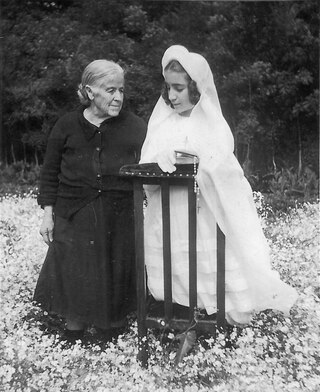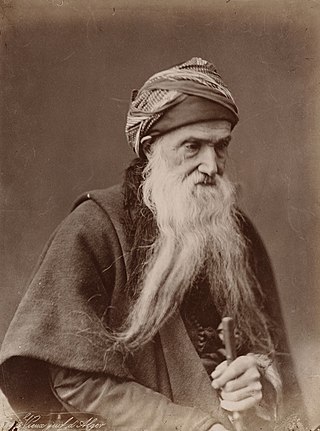| |||||
| Decades: | |||||
|---|---|---|---|---|---|
| See also: | |||||
Events from the year 1830 in Algeria . [1] [2] [3] [4] [5] [6] [7] [8] [9]
| |||||
| Decades: | |||||
|---|---|---|---|---|---|
| See also: | |||||
Events from the year 1830 in Algeria . [1] [2] [3] [4] [5] [6] [7] [8] [9]

Algeria, officially the People's Democratic Republic of Algeria, is a country in the Maghreb region of North Africa. It is bordered to the northeast by Tunisia; to the east by Libya; to the southeast by Niger; to the southwest by Mali, Mauritania, and Western Sahara; to the west by Morocco; and to the north by the Mediterranean Sea. Algeria has a semi-arid climate, with the Sahara desert dominating most of the territory except for its fertile and mountainous north, where most of the population is concentrated. Spanning 2,381,741 square kilometres (919,595 sq mi), it is the world's tenth-largest nation by area, and the largest nation in Africa. With a population of 44 million, Algeria is the tenth-most populous country in Africa, and the 32nd-most populous country in the world. The capital and largest city is Algiers, located in the far north on the Mediterranean coast.

Colonialism is the pursuing, establishing and maintaining of control and exploitation of people and of resources by a foreign group. Colonizers monopolize political power and hold conquered societies and their people to be inferior to their conquerors in legal, administrative, social, cultural, or biological terms. While frequently advanced as an imperialist regime, colonialism can also take the form of settler colonialism, whereby colonial settlers invade and occupy territory to permanently replace an existing society with that of the colonizers, possibly towards a genocide of native populations.

Claude Henri de Rouvroy, comte de Saint-Simon, better known as Henri de Saint-Simon, was a French political, economic and socialist theorist and businessman whose thought had a substantial influence on politics, economics, sociology and the philosophy of science. He was a younger relative of the famous memoirist the Duc de Saint-Simon.

The French colonial empire comprised the overseas colonies, protectorates, and mandate territories that came under French rule from the 16th century onward. A distinction is generally made between the "First French colonial empire", that existed until 1814, by which time most of it had been lost or sold, and the "Second French colonial empire", which began with the conquest of Algiers in 1830. On the eve of World War I, France's colonial empire was the second largest in the world after the British Empire.

French Algeria, also known as Colonial Algeria, was the period of Algerian history when the country was a colony and later an integral part of France.

The pieds-noirs are an ethno-cultural group of people of French and other European descent who were born in Algeria during the period of French rule from 1830 to 1962. Many of them departed for mainland France during and after the war by which Algeria gained its independence in 1962.

The French protectorate in Morocco, also known as French Morocco, was the period of French colonial rule in Morocco that lasted from 1912 to 1956. The protectorate was officially established 30 March 1912, when Sultan Abd al-Hafid signed the Treaty of Fez, though the French military occupation of Morocco had begun with the invasion of Oujda and the bombardment of Casablanca in 1907.

Benjamin Olinde Rodrigues, more commonly known as Olinde Rodrigues, was a French banker, mathematician, and social reformer. In mathematics Rodrigues is remembered for Rodrigues' rotation formula for vectors, the Rodrigues formula for the Legendre polynomials, and the Euler–Rodrigues parameters.

A medina is a historical district in a number of North African cities, often corresponding to an old walled city. The term comes from the Arabic word simply meaning "city" or "town".

The Republic of the Rif was a confederate republic in the Rif, Morocco, that existed between 1921 and 1926. It was created in September 1921, when a coalition of Rifians led by Abd el-Krim revolted in the Rif War against the Spanish protectorate in Morocco. The French would intervene on the side of Spain in the later stages of the conflict. A protracted struggle for independence killed many Rifians and Spanish–French soldiers, and witnessed the use of chemical weapons by the Spanish army—their first widespread deployment since the end of the World War I. The eventual Spanish–French victory was owed to the technological and manpower advantages despite their lack of morale and coherence. Following the war's end, the Republic was ultimately dissolved in 1926.

The history of Jews in Algeria goes back to Antiquity, although it is not possible to trace with any certainty the time and circumstances of the arrival of the first Jews in what is now Algeria. In any case, several waves of immigration helped to increase the population. There may have been Jews in Carthage and present-day Algeria before the Roman conquest, but the development of Jewish communities is linked to the Roman presence. Jewish revolts in Israel and Cyrenaica in the 1st and 2nd centuries certainly led to the arrival of Jewish immigrants from these regions. The vast majority of scholarly sources reject the notion that there were any large-scale conversions of Berbers to Judaism.

The Sétif and Guelma massacre was a series of attacks by French colonial authorities and pied-noir European settler militias on Algerian civilians in 1945 around the market town of Sétif, west of Constantine, in French Algeria. In response to French police firing on demonstrators at a protest on 8 May 1945, native Algerians rioted in the town. Others attacked French settlers (colons) in the surrounding countryside, resulting in 102 deaths. The French colonial authorities and European settlers retaliated by killing an estimated 6,000 to 45,000 Muslims in the region.

A burnous, also burnoose, burnouse, bournous or barnous, is a long cloak of coarse woollen fabric with a pointed hood, often white in colour, traditionally worn by Arab and Berber men in North Africa. Historically, the white burnous was worn during important events by men of high positions. Today, men of different social standing may wear it for ceremonial occasions, such as weddings or on religious and national holidays.

Relations between France and Algeria span more than five centuries. Through this period, there have been many changes within each of the nations, with consequent effects on their relations. Algeria was once part of the Ottoman Empire, and in the 19th century was conquered and colonized by France. It played an important role in both world wars.

The French conquest of Algeria took place between 1830 and 1903. In 1827, an argument between Hussein Dey, the ruler of the Regency of Algiers, and the French consul escalated into a blockade, following which the July Monarchy of France invaded and quickly seized Algiers in 1830, and seized other coastal communities. Amid internal political strife in France, decisions were repeatedly taken to retain control of the territory, and additional military forces were brought in over the following years to quell resistance in the interior of the country.
Pamela M. Pilbeam is an English historian, lecturer and professor emeritus at the Royal Holloway, University of London. She specializes in the history of France since 1789, especially in the 19th century.

Settler colonialism is a logic and structure of displacement by settlers, using colonial rule over an environment for replacing it and its indigenous peoples with settlements and the society of the settlers.

Auguste Hubert Warnier was a French medical doctor, journalist and politician who spent most of his career in Algeria. At first he was a Saint-Simonian and was sympathetic to the local population. He thought the Berbers had Germanic blood and a civilization derived from Roman and Christian origins, so could readily adapt to French civilization. He had no respect for the Arab "intruders". Later he took the view that the indigenous people had destroyed the once-fertile environment of Algeria, became a proponent of French colonization and opposed the "Arab Kingdom" policy of Napoleon III. In his last years he was a Representative in the National Assembly for the Province of Algiers. He was responsible for a law that allowed expropriation of land or forced sale to colonists.
The Arab Bureaux was a special section of colonial France's military in Algeria that was created in 1833 and effectively authorized by a ministerial order on 1 February 1844. It was staffed by French Orientalists, ethnographers and intelligence officers who specialized in indigenous affairs in an effort to help administer the new colony.

Slavery is noted in the area later known as Algeria since antiquity. Algeria was a center of the Trans-Saharan slave trade route of enslaved Black Africans from sub-Saharan Africa, as well as a center of the slave trade of Barbary slave trade of Europeans captured by the barbary pirates.